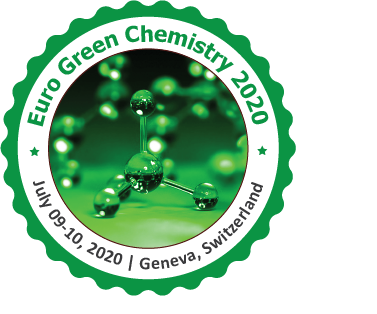. Muhammad Usman
Former Director General of Agricultural Research System
Title: Green Chemistry and Technology is the major industry for the development of health, basic need of daily life, create employment, generate income, stronger economy, reducing financial crises, global Poverty and hunger in the developing countries of the world particularly in south Asia.
Biography
Biography: . Muhammad Usman
Abstract
The aim of presentation consist of green chemistry, health, life, crises, global poverty and hunger were studied and reported that Green Chemistry and Technology is the major industry for the development of health, basic need of daily life, create employment, generate income, stronger economy, reducing financial crises, global Poverty and hunger in the developing countries of the world particularly in south Asia. The study reported that chemistry is the science of composition, structure, properties and reaction of a substance, matter and molecular system. Green chemistry is one of the branch of chemistry, major sustainable industry consists of design of chemical products and processes that reduce or eliminate the use or generation of hazardous substance. Green chemistry applies across the life cycle of a chemical product including its design, manufacture, use and ultimate disposal. It is also called as a sustainable chemistry, is an area of chemistry and chemical engineering focused on the designing of products and process that minimize the use and generation of hazardous substances. The major principal of green chemistry including prevention, atom economy, less hazardous chemical synthesis, designing safer chemicals, safer solvents and auxiharies, design for energy efficiency, use of renewable feed stocks etc. the study further reported that green chemistry prevent pollution, reduce the negative impact of chemical products, eliminate the amount of toxic substance and minimize the hazards of chemical feed stock.The study reported that the total countries available in the world are 225, consist of (Developed countries = 49, developing countries = 150, observer state = 4, state without partial recognition = 8, unrecognized state = 14). Similarly, South Asia comprises the countries of Pakistan, Bangladesh, India, Bhutan, Maldives, Nepal and Sri Lanka. In the light of above study, it is proposed that Nutritional Science and Food Chemistry should be commercialized for the development of health, basic need of daily life, create employment, generate income, stronger economy, reducing financial crises, global Poverty and hunger in the developing countries of the world particularly in south Asia.

